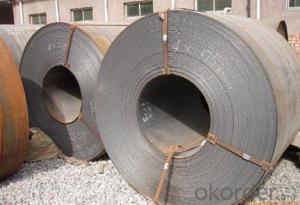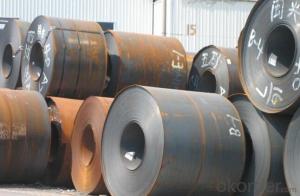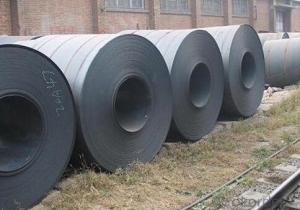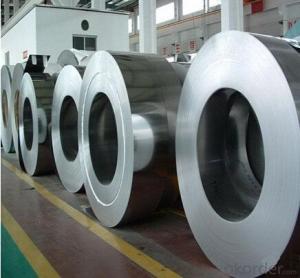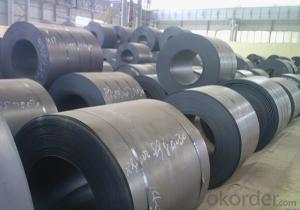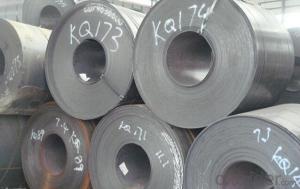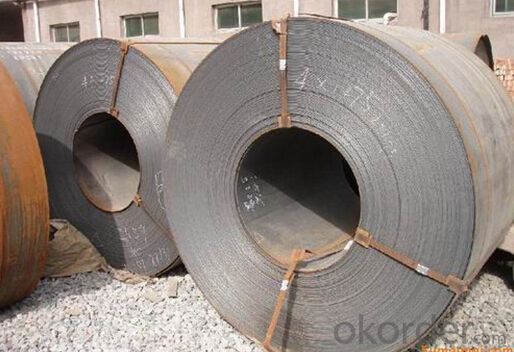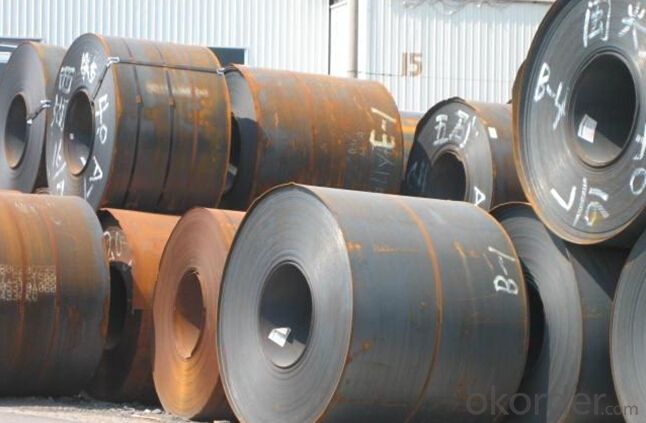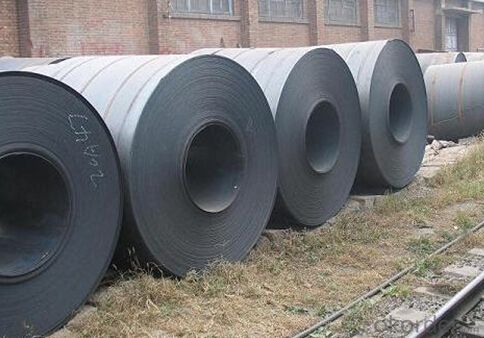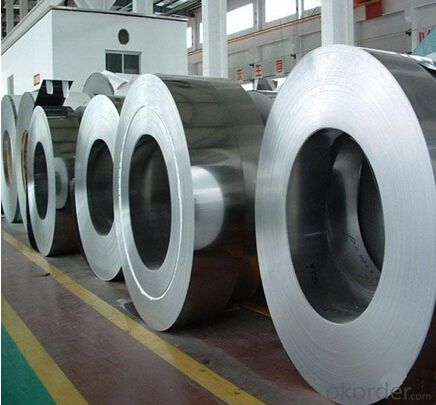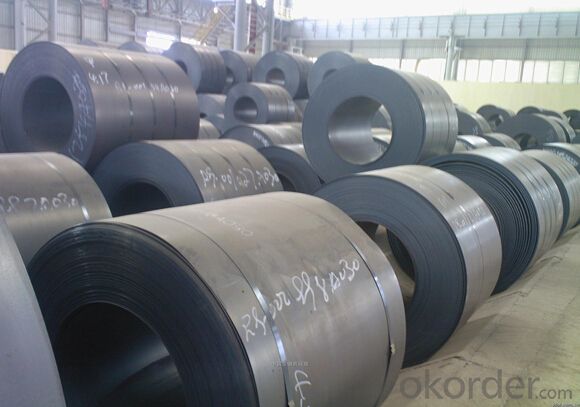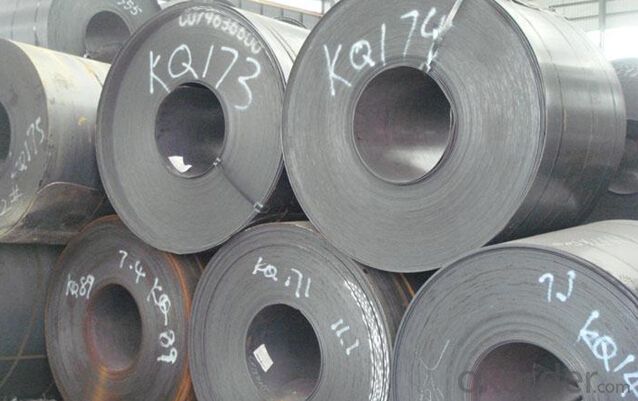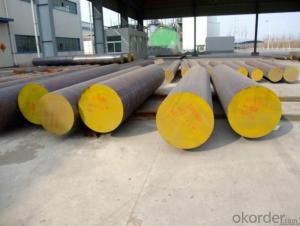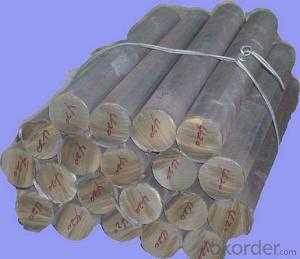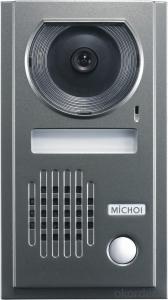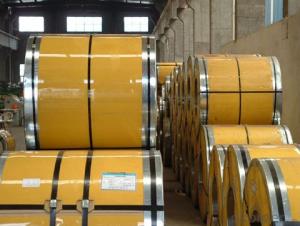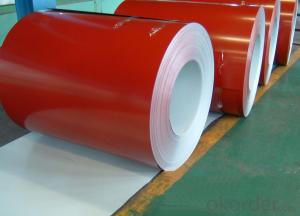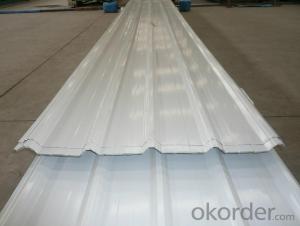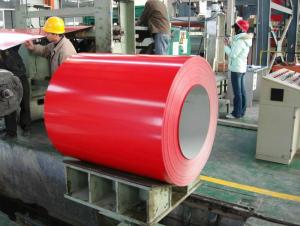EG_GA_GI_PPGI_GL_HR_CR Steel Coils_Sheets
- Loading Port:
- Tianjin
- Payment Terms:
- TT OR LC
- Min Order Qty:
- 25 m.t.
- Supply Capability:
- 10000 m.t./month
OKorder Service Pledge
OKorder Financial Service
You Might Also Like
Specification
EG_GA_GI_PPGI_GL_HR_CR Steel Coils_Sheets
Quick Details
Name | Hot Rolled Steel Coil |
Standard | GB/ASTM/SAE/AISI/DIN/JIS/EN/BS |
Surface Treatment: | Black/Peeling/Polished/Machined |
Delivery Condition: | Hot Rolled or Forged/Peeled or Black Surface |
Test | SGS/UT 100% Elements Testing |
Certificate: | ISO/Mill Certificate |
Service: | 24 hours online service / |
more than 20 years trading and manufacture | |
Quality Assurance: | the third party inspection, such as SGS, BV, TUV…etc. is acceptable |
Packaging Details: | Seaworthy Packaging or as per customer's packing instruction |
Specification
| Thickness | 0.15mm-2.0mm |
| Thickness tolerance | +/- 0.02mm |
| Width | 600mm-1250mm |
| Width tolerance | +/-2mm |
| Zinc coating | Z40-Z275 g/m2 |
| Color | Grey white, sea blue, red or any RAL standard |
| Painting | Top: 20+/-5um Back: 5mic---8mic |
| Standard | ASTM, AISI, DIN, GB,JIS |
| Material | SGCC,SGCD,SECC,SECD,DX51D+Z, S350GD, S450GD, S550GD |
| Technique | Cold rolled, hot-dipped galvanizing, color coated, galvanized and so on |
| Spangle | Zero spangle, regular spangle or normal spangle |
| Surface Structure | Galvanized, zero spangle, regular spangle or normal spangle |
| Surface treatment | Chromate and oiled, chromate and non-oiled |
| Packing | Export standard, or according to customer's requirement |
| Min order | 25Tons |
| Coil weight | 3-6tons or as client requirement |
| Coil ID | 508/610mm |
Company Information
CNBM International Corporation is the most import and export platform of CNBM group(China National Building Material Group Corporation) ,which is a state-owned enterprise, ranked in 270th of Fortune Global 500 in 2015.
With its advantages, CNBM International are mainly concentrate on Cement, Glass, Iron and Steel, Ceramics industries and devotes herself for supplying high quality series of refractories as well as technical consultancies and logistics solution.
After-sale service | l CNBM provides the services and support you need for every step of our cooperation. We’re the business partners you can trust; you can relax and get on with doing business. |
l For any problem, please kindly contact us at any your convenient time, we’ll reply you in our first priority within 24 hours | |
Advantages | Industry experience over 20 years. |
Shipment of goods -More than 70 countries worldwide. | |
The most convenient transport and prompt delivery. | |
Competitive price with best service. | |
High technical production line with top quality products. | |
High reputation based on best quality products. |
Product Show
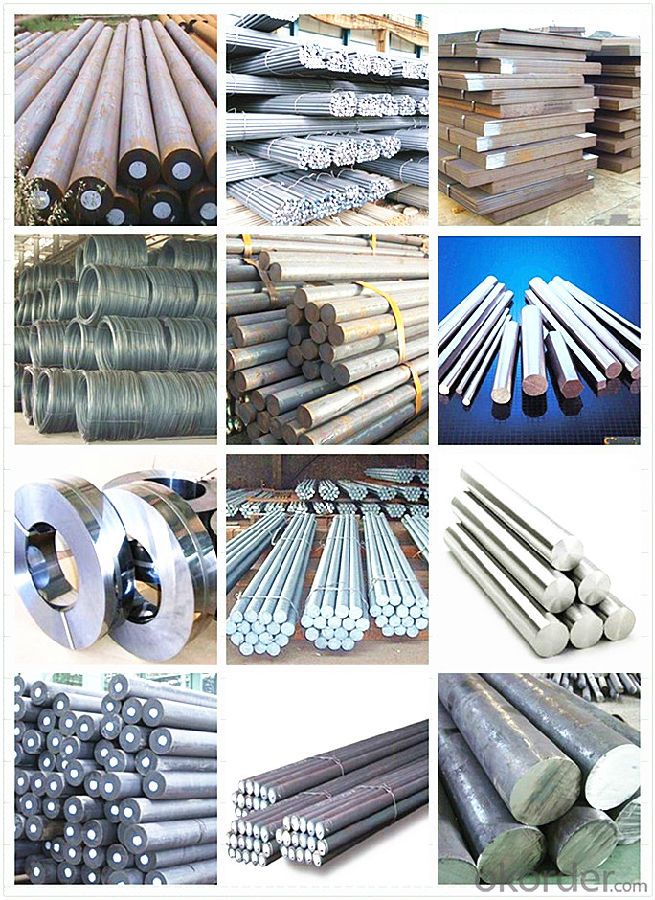
FAQ
Are you a trading company or manufacturer? | Manufacturer |
What’s the MOQ? | 3 metric ton |
What’s your delivery time? | 15-35 days after downpayment received |
Do you Accept OEM service? | Yes |
what’s your delivery terms? | FOB/CFR/CIF |
What's the Payment Terms? | 30% as deposit,70% before shipment by T/T |
Western Union acceptable for small amount. | |
L/C acceptable for large amount. | |
Scrow ,Paybal,Alipay are also ok | |
Why choose us? | Chose happens because of quality, then price, We can give you both. |
Additionally, we can also offer professional products inquiry, products knowledge train (for agents), smooth goods delivery, excellent customer solution proposals. | |
What's your available port of Shipment? | Main Port, China |
What’s your featured services? | Our service formula: good quality+ good price+ good service=customer's trust |
Where are your Market? | Covering more than 160 countries in the world |
- Q: What are the different forms of special steel available in the market?
- There are several different forms of special steel available in the market, each with its own unique properties and applications. Some of the most common forms include: 1. Stainless Steel: This is a versatile form of special steel that is highly resistant to corrosion and staining. It is commonly used in the production of cutlery, kitchen appliances, and medical equipment. 2. Tool Steel: This type of special steel is highly durable and resistant to wear and tear. It is primarily used in the manufacturing of cutting tools, molds, and dies. 3. High-speed Steel: As the name suggests, high-speed steel is designed to withstand high temperatures and retain its hardness even at elevated speeds. It is commonly used in the production of drill bits, saw blades, and gear cutters. 4. Alloy Steel: This form of special steel is created by adding various alloying elements such as chromium, nickel, or molybdenum to improve its strength and durability. Alloy steel is widely used in the automotive industry, construction, and machinery manufacturing. 5. Carbon Steel: Carbon steel is a popular form of special steel due to its affordability and high strength-to-weight ratio. It is commonly used in the construction of buildings, bridges, and pipelines. 6. Maraging Steel: Maraging steel is a type of low-carbon, high-nickel steel that is known for its exceptional strength and toughness. It is often used in aerospace and defense applications, such as aircraft components and missile casings. 7. Spring Steel: This form of special steel is specifically designed to withstand high stress and maintain its shape under repeated heavy loads. It is commonly used in the production of springs, such as those found in automotive suspensions and mechanical devices. These are just a few examples of the different forms of special steel available in the market. Each type has its own unique set of properties and applications, making them suitable for a wide range of industries and manufacturing processes.
- Q: What are the key alloying elements used in special steel?
- The specific application and desired properties determine the key alloying elements used in special steel. Some commonly used alloying elements in special steel are chromium, nickel, molybdenum, vanadium, tungsten, and cobalt. To enhance the steel's hardness, wear resistance, and corrosion resistance, chromium is often added. Nickel, on the other hand, increases the steel's strength, toughness, and corrosion resistance. Molybdenum is commonly used to improve the steel's high-temperature strength, resistance to creep, and resistance to corrosion by certain chemicals. Vanadium is added to increase the steel's strength, toughness, and wear resistance, especially at high temperatures. Tungsten is another element used to enhance the steel's high-temperature strength and wear resistance. Cobalt, on the other hand, is often added to improve the steel's strength and toughness, particularly at elevated temperatures. These alloying elements are carefully chosen and added in specific proportions to achieve the desired properties for various applications, including aerospace, automotive, energy, and tooling industries. By incorporating these alloying elements, special steel can be customized to meet specific performance requirements, making it suitable for a wide range of demanding applications.
- Q: What are the challenges in manufacturing special steel?
- There are several challenges in manufacturing special steel. One of the main challenges is ensuring the precise composition and properties of the steel. Special steels often require specific alloying elements and precise heat treatments to achieve desired characteristics, making it crucial to maintain strict quality control throughout the manufacturing process. Another challenge is the high cost of raw materials and the need for advanced equipment and technology to produce special steel. Additionally, meeting stringent industry standards and regulations, as well as managing environmental impacts, can pose challenges in the manufacturing of special steel.
- Q: What are the different shapes and forms in which special steel is available?
- Special steel is available in various shapes and forms to cater to different industrial and engineering applications. Some common shapes and forms of special steel include: 1. Bars: Special steel bars are widely used in construction, automotive, and machinery industries. They are available in round, square, hexagonal, and flat shapes, offering flexibility in design and ease of machining. 2. Sheets and Plates: Special steel sheets and plates are used in manufacturing various components and structures that require high strength and durability. They are available in different thicknesses and sizes, making them suitable for diverse applications. 3. Tubes and Pipes: Special steel tubes and pipes are commonly used in industries such as oil and gas, construction, and automotive. They come in various dimensions and can be seamless or welded, catering to specific requirements. 4. Wire: Special steel wire is widely used in manufacturing springs, cables, fasteners, and other products that require high tensile strength and resistance to corrosion. It is available in different diameters and can be further processed through processes like drawing or annealing. 5. Forgings: Special steel can also be obtained in the form of forgings, which are shaped through controlled heating and mechanical pressure. Forgings offer excellent strength and toughness, making them suitable for critical components in aerospace, power generation, and heavy machinery industries. 6. Castings: Special steel castings are produced by melting the steel and pouring it into molds. This allows for the production of complex shapes and intricate details, making castings ideal for applications in the automotive, energy, and mining sectors. 7. Profiles: Special steel profiles are customized shapes that are specifically designed to meet unique engineering requirements. They can be extruded, rolled, or cold-drawn, and are widely used in industries such as construction, transportation, and manufacturing. These are just some of the many shapes and forms in which special steel is available. The choice of shape and form depends on the specific application and the desired mechanical properties required for the end product.
- Q: How does special steel enhance the performance of cutting tools?
- Special steel brings about various enhancements to the performance of cutting tools. To begin with, special steel is specifically designed to possess greater hardness and wear resistance in comparison to standard steel. This heightened hardness ensures that cutting tools retain their sharpness for extended periods, resulting in improved cutting efficiency and accuracy. Furthermore, the exceptional wear resistance of special steel guarantees that the cutting edges of the tools do not wear down quickly, allowing them to endure the substantial forces and pressures involved in cutting operations. Moreover, special steel often exhibits superior toughness and strength when compared to regular steel. This augmented toughness enables cutting tools to endure impacts and vibrations without succumbing to breakage or chipping, thus ensuring their durability and longevity. Additionally, the increased strength of special steel empowers cutting tools to handle higher cutting speeds and feed rates, ultimately enhancing productivity and reducing machining time. Special steel also boasts excellent heat resistance properties, which are crucial for cutting tools subjected to elevated temperatures during machining processes. This heat resistance prevents the cutting edges from softening or deforming, circumstances that could lead to subpar cutting performance and reduced tool lifespan. Additionally, special steels can possess improved corrosion resistance, effectively shielding the tools from rust or corrosion caused by exposure to moisture or aggressive cutting fluids. In conclusion, the distinctive properties of special steel, including heightened hardness, wear resistance, toughness, strength, heat resistance, and corrosion resistance, all work together to enhance the performance of cutting tools. These characteristics enable cutting tools to maintain their sharpness, withstand high forces and temperatures, resist wear and corrosion, and ultimately improve cutting efficiency, accuracy, and tool lifespan.
- Q: How does special steel perform in medical applications?
- Special steel performs exceptionally well in medical applications due to its unique properties. It offers high strength, durability, and corrosion resistance, making it ideal for surgical instruments, implants, and medical devices. Special steel's biocompatibility ensures it doesn't react with body tissues, reducing the risk of complications or adverse reactions. Additionally, its malleability allows for precise shaping, facilitating the production of complex medical tools. Overall, special steel contributes to the efficiency and reliability of medical procedures, improving patient outcomes.
- Q: How does special steel perform under extreme cold conditions?
- Special steel performs well under extreme cold conditions due to its high strength, toughness, and resistance to brittleness. It retains its mechanical properties even at low temperatures, making it suitable for various applications in sub-zero environments.
- Q: What are the different heat treatment methods for special steel?
- There are several heat treatment methods for special steel, including annealing, quenching, tempering, and normalizing. Annealing involves heating the steel to a specific temperature and then slowly cooling it to improve its machinability and reduce internal stresses. Quenching is a rapid cooling process that makes the steel harder and more brittle, but also increases its strength. Tempering is a heat treatment process that involves reheating quenched steel to a specific temperature and then cooling it again to improve its toughness and reduce brittleness. Normalizing is another heat treatment method that involves heating the steel to a specific temperature and then cooling it in still air to improve its mechanical properties and refine its grain structure.
- Q: Can special steel be used in the chemical processing equipment manufacturing industry?
- Yes, special steel can be used in the chemical processing equipment manufacturing industry. Special steel is often used in this industry due to its superior corrosion resistance, high temperature resistance, and excellent mechanical properties. It can withstand the harsh chemical environments and extreme operating conditions typically found in chemical processing equipment.
- Q: How does special steel perform in high-temperature fatigue resistance?
- Special steel performs well in high-temperature fatigue resistance due to its unique composition and heat treatment processes. It has enhanced mechanical properties, such as high strength and toughness, which enable it to withstand repeated cyclic loading and resist deformation, even at elevated temperatures. Additionally, special steel exhibits excellent thermal stability, preventing the degradation of its microstructure and maintaining its mechanical properties over time. Overall, special steel is a reliable material choice for applications requiring high-temperature fatigue resistance.
Send your message to us
EG_GA_GI_PPGI_GL_HR_CR Steel Coils_Sheets
- Loading Port:
- Tianjin
- Payment Terms:
- TT OR LC
- Min Order Qty:
- 25 m.t.
- Supply Capability:
- 10000 m.t./month
OKorder Service Pledge
OKorder Financial Service
Similar products
Hot products
Hot Searches
Related keywords
